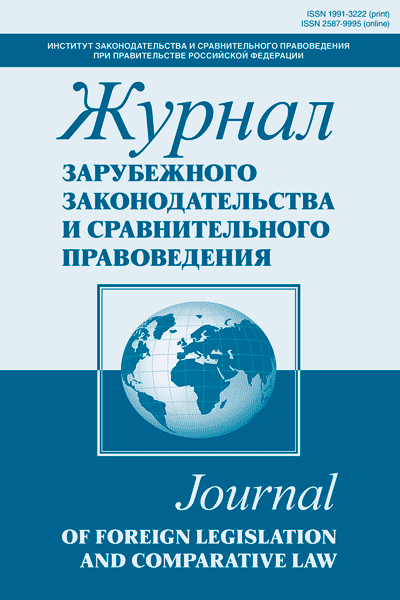The article is devoted to the analysis of the formation of a system of alternative dispute resolution mechanisms in Serbia as one of the instruments stimulating the development of entrepreneurship and combating corruption. The author considers such nonjudicial legitimate methods of dispute resolution as negotiations of the parties, mediation, arbitration (binding arbitration) and the court of honor at the Economic chamber of Serbia, as well as other conciliation procedures. One of the main characteristic by which non-judicial methods of dispute resolution can be classified is the participation in them of third parties. The Serbian law relates to them participation of mediators in the reconciliation procedures, ombudsmen, state rights activists (authorized to protect the rights and interests of the state), judges, lawyers. Special attention is paid to mediation as a set of voluntary modes of settlement of the conflicting parties with the participation of third parties. The mediation is conducted on the good will of the conflicting parties by the mediator who seeks to resolve disputes through a settlement agreement. Under the law mediation can be realized by mediators, ombudsmen, state rights activists (authorized to protect the rights and interests of the state) who are trained by judges and lawyers. The article discusses the mechanism of pre-trial dispute settlement between the conflicting parties. Special attention is paid to the analysis of pre-trial settlement of disputes between parents of minor children decided to divorce. In Serbia an important role in the formation of alternative dispute resolution mechanisms of economic entities plays a chamber of Commerce of Serbia under which exists the court of honor and court of arbitration. Their competence includes the resolution of disputes through mediation.
alternative dispute resolution, mediation, principles of mediation, conciliation, Ombudsman, state rights activists, chamber of Commerce, court of honor, court of arbitration, code of business conduct, corporate governance code.
1. Sluzhbeni glasnik. 2001. № 65.
2. Sluzhbeni glasnik. 2005. № 18.
3. Sluzhbeni glasnik. 2005. № 79.
4. Sluzhbeni glasnik. 2006. № 1.
5. Sluzhbeni glasnik. 2007. № 54.
6. Sluzhbeni glasnik. 2011. № 36.
7. Sluzhbeni glasnik. 2014. № 55.





